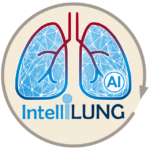The study will focus on collecting data from patients throughout their entire ICU stay and beyond, tracking key metrics such as ventilator-free days, and survival rates.
Prospective observational study started in January
Beginning in January 2025, the project partners will include more than 500 patients across multiple centers in a prospective observational clinical study. The study will focus on collecting data from patients throughout their entire ICU stay and beyond, tracking key metrics such as ventilator-free days, and survival rates. The study will include patients with acute respiratory distress syndrome (ARDS) and also non-ARDS patients who require intubation for more than 24 hours. The project consortium aims to validate the IntelliLung algorithm with this real-world data.


